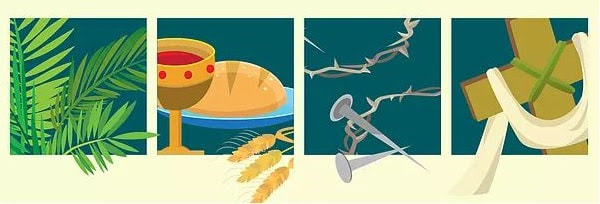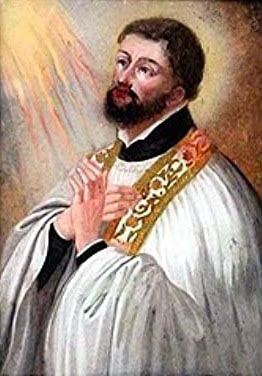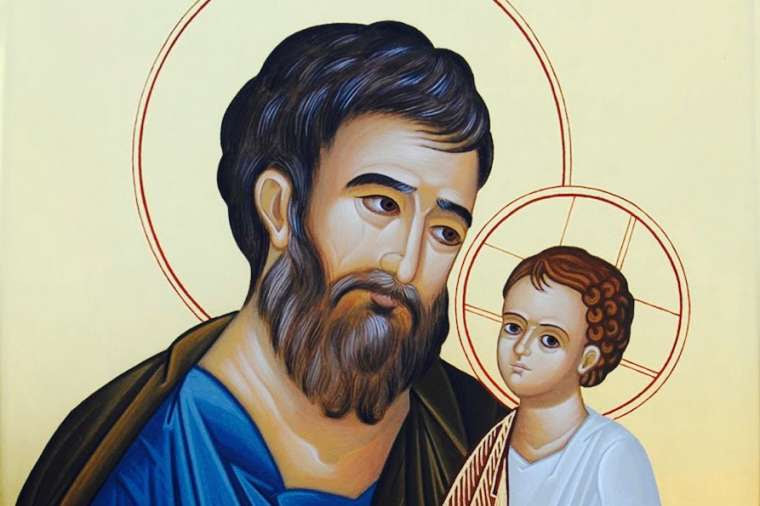|
Rev. Charles Hoffacker In December 1950, United Nations troops, including United States Marines, were evacuating North Korea. But what about the Korean refugees who were waiting to flee? North Korean troops would certainly view them as American
sympathizers and slaughter them. Leonard LaRue, captain of the cargo ship SS Meredith Victory was asked if he would help. He did not hesitate to get involved. Without an escort, his ship traveled past enemy submarines and stayed in harbor for thirteen hours. He and his crew of 35 hurried on board 14,000 refugees. The Meredith Victory still carried its original load of jet fuel. It lacked so much else: food, heat, sanitation facilities, lighting in the holds, mine detection equipment. There was no doctor or interpreter on board. The only weapon available was LaRue’s pistol. Yet the ship made it safely to a small South Korean island in time for Christmas. No one died during this escape. The Meredith Victory adventure remains the largest ever human rescue by a single ship. Among the refugees were the future parents of the current South Korean president Moon Jae-in. Within a few years, Captain LaRue left the shipping business and entered a Benedictine abbey in New Jersey where he eventually became Br. Marinus. He avoided celebrity status and devoted himself to prayer and service. Br. Marinus died in 2001. Although usually with much less drama, all of us are given opportunities to impact lives in one way or another. What opportunities will you have to do so today?
0 Comments
Rev. Charles Hoffacker Today is the Wednesday in Easter Week. The first reading at the Eucharist, Acts 3:1-10, recounts how shortly after Jesus rose from the dead, Peter and John heal a lame man at the Jerusalem temple and publicly declare that Jesus is back. The bystanders are amazed by what is happening.
The authorities quickly arrive and arrest the two disciples on the charge of announcing the resurrection of the crucified criminal Jesus of Nazareth. Peter and John did this both by preaching and by healing a handicapped beggar in his name. They experience pushback. These disciples end up in big trouble for making the world more like God’s kingdom. When we act as they did, when we do something for the love of Jesus that makes lame people leap and heartbroken folk rejoice, then our intervention, whether fruitful or not, is likely to produce pushback from the powers that be or their front men. Don’t be surprised when this happens. Expect it. Above all, don’t let pushback slow you down or turn you around. Remember something Jesus said shortly before his death and resurrection, something he must have said with a smile: “Take courage; I have conquered the world.” Rev. Mary McCue Today is Monday in Easter Week. We have just experienced sacred liturgies
commemorating “the lows and the highs” of Jesus Christ’s life on earth, his death and his resurrection. Now, the legacy of Jesus will start to emerge, as stories are told and, eventually, written down in the Gospels. It is a time of emerging faith. It is the beginning of Christianity. We heard, in the first reading at the Easter Vigil, the story of Genesis – how God created the world from a formless void veiled in darkness, how light appeared, to rule over the day and the night. How vegetation was created. And “God saw that it was good.” These two creation stories are, of course, thousands of years apart in time. Even so, they are guideposts for us. They show us that God is working powerfully among us and with us, and creates great things for us – the Earth. The sky. The plants and fruits. His Son. Easter is a time of new beginnings. Let us use this time to begin again ourselves, to re-discover our faith, to rejoice in all that God has done for us. Above all, let us rejoice in our Savior, who we have just mourned for and suffered with and triumphed with this past weekend. Let us never lose sight of the light – the light of Jesus. Thanks be to God. Rev. Charles Hoffacker G. A. Studdert-Kennedy was among the best-known Anglican priests of the early twentieth century. While serving as a British chaplain during World War I, he became affectionately known as “Woodbine Willy.”
This passage from his book The Word and the Work is especially appropriate for today, the Wednesday in Holy Week. “On June 7th, 1917, I was running to our line half mad with fright, though running in the right direction, thank God, through what had once been a wooded copse. It was being heavily shelled. As I ran I stumbled and fell over something. I stopped to see what it was. It was an undersized, underfed German boy, with a wound in his stomach and a hole in his head. I remember muttering, ‘You poor little devil, what had you got to do with it? not much great blonde Prussian about you.’ “Then there came light. It may have been pure imagination, but that does not mean that it was not also reality, for what is called imagination is often the road to reality. It seemed to me that the boy disappeared and in his place there lay the Christ upon his cross, and cried, ‘Inasmuch as ye have done it unto the least of these my little ones ye have done it unto me.‘ From that moment on I never saw a battlefield as anything but a crucifix. From that moment on I have never seen the world as anything but a crucifix.” Rev. Mary McCue Today is the first day of Holy Week, marking the coming end of Lent. In Lent,
we have the privilege of re-reading and re-living the events in Jesus’ life that mark his end and his beginning. The readings for this week are somber. They include intimations of betrayal by Judas Iscariot, Jesus washing his disciples’ feet and taking leave of them, the soldiers coming to arrest him, Pilates’ decision to allow him to be crucified, Peter’s denial of him and his burial. Scripture reminds us of all of these events. So do our Holy Week liturgies. While not as elaborate as they were in past years, and hopefully will be again in coming years, they serve to help us re-live the story of Jesus. Throughout Holy Week, the Gospel readings are from the Gospel of John. These readings narrate parts of the story of Jesus. They also offer hope. In the Gospel of John, Jesus repeatedly refers to Himself as the light. This Gospel includes more references to light – eleven – than in any other book in the New Testament, or in the Old Testament. We should pay close attention to those references; there is a message there for us. Despite the somber character of Holy Week, and its painful reminders of what was done to Jesus, he promises us Light – his light. He is the Light of the World. Thanks be to God. Rev. Mary McCue
MJ Layton
Rev. Charles Hoffacker What is by far the longest psalm in the Psalter ends with this verse:
"I have gone astray like a sheep that is lost; search for your servant, for I do not forget your commandments." (Psalm 119:176" The 22 sections of Psalm 119 each contain 8 verses. God’s law is the topic throughout, identified throughout by a variety of synonyms, including commandments, decrees, promise, statutes, and word. At first, this psalm can seem dull, but praying it repeatedly opens up its inexhaustible depths. The Daily Office Lectionary in the Book of Common Prayer assigns three consecutive sections of Psalm 119 to nearly every Wednesday in the year. In the final verse, the Psalmist appears as a lost sheep, a creature in need, whom God must search for and find. Here there is a radical and appropriate abandonment of all self-righteousness. At the same time, confidence in God rises up. The Psalmist does not forget the divine commandments and the utterly reliable promises they contain. So this massive psalm ends with a final assertion of our need and God’s provision. Here is the appropriate place from which to offer all our worship. Rev. Mary McCue Today's appointed reading is from the Letter to the Hebrews (2:1-4).
"Therefore we must pay greater attention to what we have heard, so that we do not drift away from it. For if the message declared through angels was valid, and every transgression or disobedience received a just penalty, how can we escape if we neglect so great a salvation? It was declared at first through the Lord, and it was attested to us by those who heard him, while God added his testimony by signs and wonders and various miracles, and by gifts of the Holy Spirit, distributed according to his will." In Lent, we all can benefit from making time to pray with the Scriptures. Hebrews is a good letter to spend some time with. Scholar Mark A. Powell calls it a masterpiece. It is written in polished and eloquent Greek. And, according to scholar Louis Berkhoff, it argues for the pre-eminence of the New Covenant – “an essential unity of Old and New Testament religions.” It uses Hebrew Scripture to argue that Jesus Christ was foretold as the king that was yet to come. At the time it was written – probably 63 or 64 – Jesus had not reappeared as a mighty King; some were becoming disillusioned. Who wrote it? In the fourth century, scholars thought it was the Apostle Paul. Later, scholarship shifted to other possible authors, largely because the language was so unlike Paul’s volatile, contextual Greek: Clement of Rome, Barnabas, Apollos or Priscilla. (Those who argue for Priscilla’s authorship claim that, to avoid suppression of the letter and/or the author, no name was attached.) Who ever wrote it, it is filled with beautiful language and thoughts. One is, I think, especially pertinent to us: “holy partners in a heavenly calling.” (Hebrews 3:1) MJ Layton  Today is the feast day of Gregory the Great, who was the Bishop of Rome from 590-604 AD. He is credited with sending the first missionaries to the English people, so the earliest seeds of our church were planted through his leadership. Gregory was an astute observer of the human condition and wrote about our tendency to self- deceive. He said, “For the mind frequently lies to itself about itself, pretending that it loves the good work when it does not, and that it does not care for worldly glory when in fact it does.” This is important to remember during Lent when we strive to fast or do works of charity. Our motives in these undertakings are complicated. However, rather than discourage us, this realization can turn us back towards God who offers us a new heart and a new spirit. Thanks be to God, whose forgiveness and grace for our shortcomings become our very motivation for serving God and others. |
Archives
May 2021
authorsThe Rev. Charles Hoffacker is a retired priest of the Diocese of Washington |



 RSS Feed
RSS Feed
